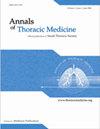COVID-19患者出院后远程康复实践的有效性:远程- covid研究-随机对照试验
IF 2.3
4区 医学
Q3 CARDIAC & CARDIOVASCULAR SYSTEMS
引用次数: 21
摘要
目的:我们旨在调查不需要任何特殊设备的远程康复训练计划对COVID-19受试者身体状况的有效性。设置和设计:这是一项随机对照研究。方法:本研究纳入了诊断为COVID-19的住院史并在4周内出院的受试者。将受试者随机分为远程康复组(TeleGr, n = 17)和对照组(CGr, n = 17)。TeleGr组接受呼吸和活动范围练习、主动循环呼吸技巧和有氧训练,每周3天,持续6周,而CGr组则接受相同内容的运动手册。使用改良的医学研究委员会(mMRC)呼吸困难评分、30秒坐立测试(30STS)和短体能测试(SPPB)来评估他们的身体状况、圣乔治呼吸问卷(SGRQ)来评估他们的生活质量,以及贝克抑郁量表。所有的评估都是在家里通过视频会议进行的。结果:TelerGr在mMRC (P= 0.035)、30STS (P= 0.005)、坐立时间(SPPB的子测试之一)和SGRQ评分方面均有显著改善(P= 0.039)。仅CGr疼痛评分有显著改善(P = 0.039)。两组间SGRQ活性(P = 0.035)和总分(P = 0.042)比较,差异有统计学意义。此外,TeleGr组的症状改善更多。结论:较少技术设备的远程康复训练方案是新型冠状病毒肺炎患者较好的替代治疗方法,可改善患者的生活质量和症状状态。临床试验注册号:nct04402983本文章由计算机程序翻译,如有差异,请以英文原文为准。
The effectiveness of POST-DISCHARGE telerehabilitation practices in COVID-19 patients: Tele-COVID study-randomized controlled trial
AIMS: We aimed to investigate the effectiveness of a telerehabilitation exercise program performed without requiring any special equipment on the physical condition of COVID-19 subjects. SETTINGS AND DESIGN: This was a randomized controlled study. METHODS: This study included subjects with a history of hospitalization with a diagnosis of COVID-19 and discharged within 4 weeks. The subjects were divided into two groups randomly, namely telerehabilitation group (TeleGr, n = 17) or control group (CGr, n = 17). The TeleGr received breathing and range of motion exercises, active cycle of breathing technique, and an aerobic training 3 days a week for 6 weeks, while CGr received an exercise brochure with the same content. Subjects were evaluated using the modified Medical Research Council (mMRC) dyspnea score for dyspnea, 30 s sit-to-stand test (30STS) and short physical performance battery (SPPB) to determine their physical status, Saint George Respiratory Questionnaire (SGRQ) to assess quality of their life, and Beck Depression Inventory. All evaluations were carried out at home using videoconferencing. RESULTS: A significant improvement was observed in TelerGr in terms of mMRC (P= 0.035), 30STS (P= 0.005), 5 sit-to-stand time which is one of the subtests of SPPB (P = 0.039) and SGRQ scores. Significant improvement was observed only in the pain score in the CGr (P = 0.039). There was a statistically significant difference between the groups in SGRQ activity (P = 0.035) and total (P = 0.042) scores. In addition, more symptomatic improvement was found in TeleGr. CONCLUSION: Telerehabilitation exercise program with less technical equipment is a good alternative treatment method for COVID-19 subjects, which improves the quality of life and symptomatic status of subjects. Clinical Trial Registration Number: nct04402983
求助全文
通过发布文献求助,成功后即可免费获取论文全文。
去求助
来源期刊

Annals of Thoracic Medicine
CARDIAC & CARDIOVASCULAR SYSTEMS-RESPIRATORY SYSTEM
CiteScore
4.10
自引率
4.30%
发文量
19
审稿时长
>12 weeks
期刊介绍:
The journal will cover studies related to multidisciplinary specialties of chest medicine, such as adult and pediatrics pulmonology, thoracic surgery, critical care medicine, respiratory care, transplantation, sleep medicine, related basic medical sciences, and more. The journal also features basic science, special reports, case reports, board review , and more. Editorials and communications to the editor that explore controversial issues and encourage further discussion by physicians dealing with chest medicine.
 求助内容:
求助内容: 应助结果提醒方式:
应助结果提醒方式:


